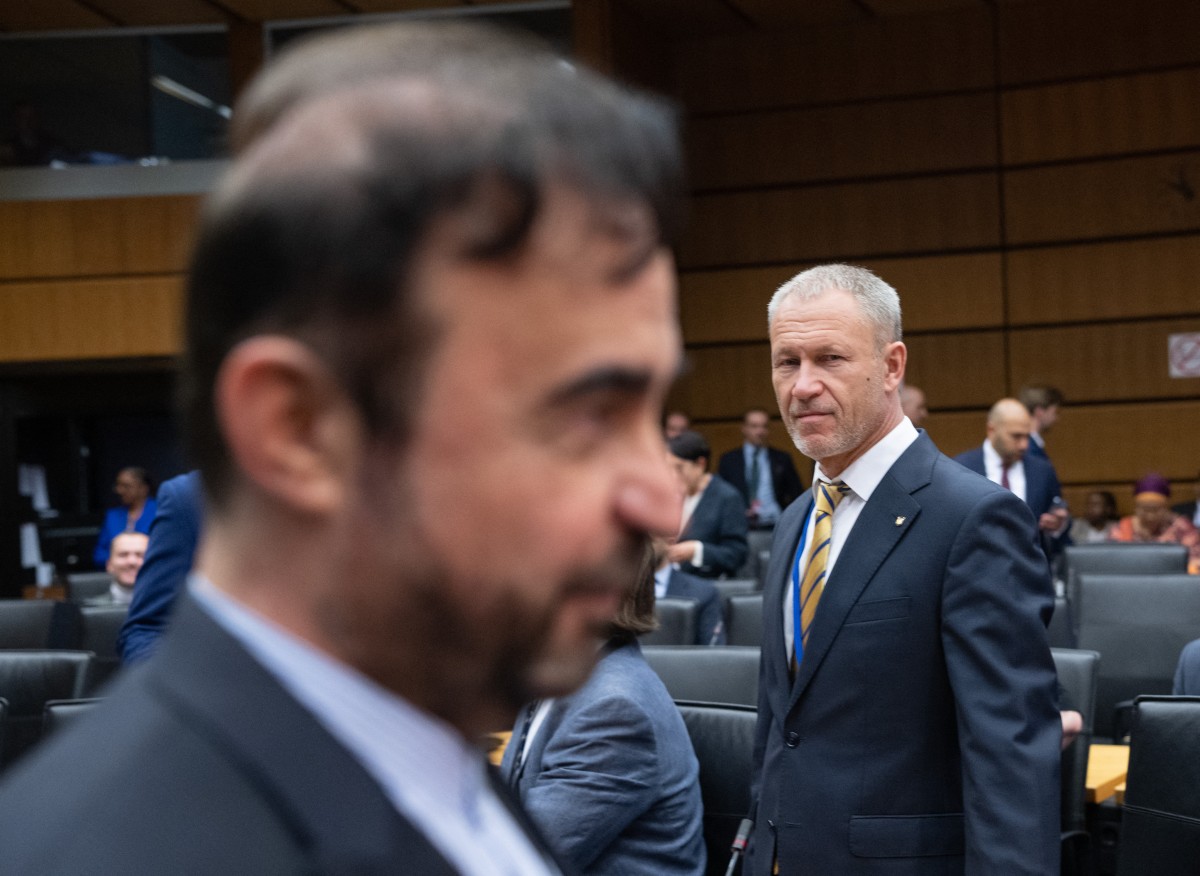Tehran, Iran – The sixth round of Iran-US nuclear talks is planned for Sunday, Tehran said as the two sides appear locked in a standoff over uranium enrichment nearly two months into the high-stakes negotiations.
On May 31, after the fifth round of talks, Iran said it had received “elements” of a US proposal for an agreement, which Araghchi has criticised for its “ambiguities”.
Tehran has said the offer failed to include issues raised in previous negotiations including the lifting of sanctions — a key demand for Tehran, which has been reeling under their weight for years.
On Monday, foreign ministry spokesman Baqaei said Iran would present a “reasonable, logical and balanced” counter-proposal.
‘National interests’
Trump said that the next round of talks could make it clear if a nuclear deal is possible to avoid military action.
In a key sticking point, Tehran has defended its right to enrich uranium as “non-negotiable”, while Washington called any Iranian enrichment a “red line”.
Iran currently enriches uranium to 60 percent, far above the 3.67-percent limit set in the 2015 deal and close though still short of the 90 percent needed for a nuclear warhead.
Western countries, including the United States and its ally Israel, have long accused Iran of seeking to acquire atomic weapons, while Tehran insists its nuclear programme is for peaceful purposes.
In an interview published on Tuesday, Iranian deputy foreign minister Majid Takht-Ravanchi said there was no “deadlock” in the talks, and that the next round would be the first in which the parties discuss “any written material”.
“Any negotiations with an international dimension come with their own sensitivities and require a great deal of patience for them to reach a result,” he told the official IRNA news agency.
“What matters to us is that we can safeguard the national interests of the country through these talks, and that is how we proceed.”
In a statement issued on Tuesday, a group of Iranian lawmakers accused the United States of turning the negotiations into a “strategic trap” in coordination with Israel.
They said Washington’s “aim is to impose demands through coercion, adopting positions that are insulting and entirely incompatible with the legitimate rights of the Iranian people.”
‘Less than satisfactory’
On Monday, the United Nations nuclear watchdog began a Board of Governors meeting in Vienna that will last until Friday to discuss Iran’s atomic activities and other issues.
The International Atomic Energy Agency meeting followed a report issued by it criticising “less than satisfactory” cooperation from Tehran, particularly in explaining past cases of nuclear material found at undeclared sites.
Iran has criticised the IAEA report as unbalanced, saying it relied on “forged documents” provided by its arch foe Israel.
On Tuesday, European powers and the United States submitted a resolution to the meeting which would condemn Iran’s “non-compliance” with its nuclear obligations, diplomats told AFP.
A vote on the motion is expected on Wednesday.
Earlier on Tuesday, Araghchi had reiterated Tehran’s criticism of the planned resolution.
“Any ill-considered and destructive decision in the Board of Governors against Iran will be met with an appropriate response,” Araghchi said during a phone call with Japanese Foreign Minister Takeshi Iwaya.
Iran has said it would reduce cooperation with the IAEA if the resolution passed.








